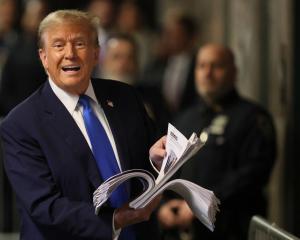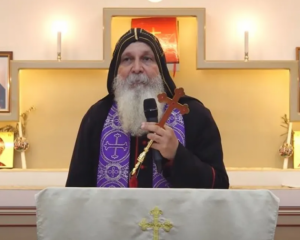Malian rebels and government troops fought for control of the northern garrison town of Gao on Saturday as the insurgents sought to capitalise on widespread chaos after last week's military coup.
The rebel assault on Gao came a day after the rebels - a loose alliance of separatist nomad Tuaregs and local Islamists - seized Kidal, one of the three main towns of north Mali, along with Gao and the historic trading city of Timbuktu.
Junta leaders, whose neighbours have given them until Monday to hand back power to civilians or face sanctions including a crippling closure of Mali's borders to trade, pledged to come up with proposals "very quickly" to restore constitutional order.
"We do not want to confiscate power," Colonel Moussa Sinko Coulibaly told reporters in Ouagadougou, the capital of Burkina Faso, after talks with Burkina President Blaise Compaore, named by West African grouping ECOWAS as main mediator in the crisis.
"We will try to refine proposals to quickly reach an institutional solution acceptable to ECOWAS, the international community but also of course our national community," said Coulibaly, the head of cabinet for junta leader Amadou Sanogo.
Burkina Foreign Minister Djibril Bassolet told Reuters he was flying to Bamako on Saturday evening for discussions.
A Reuters reporter saw the rebels enter Gao early on Saturday and hoist the flag of Azawad, the desert territory bigger than France that they want to make their homeland, before pulling back after meeting resistance.
Some rebels shouted "God is Great" in Arabic, suggesting loyalty to Islamist groups that are not separatist but want to impose sharia, Islamic law, on the mostly Muslim country.
The town of 90,000 people has the largest garrison in the north and regular army forces backed by helicopters and local militias held the town centre, prompting a retreat to the outskirts by rebel units.
"The army is in charge of the town centre and the military camps, which are safe and 100 percent equipped," Abdou Yehia Maiga, a leader of the local Ganda Koy militia, told Reuters by telephone.
"If so much as a cow walks in front of those camps it will get shot at," he added. A Reuters reporter said only sporadic shooting was heard in the outskirts of the town in the evening.
The unrest in Mali, Africa's third largest gold producer, has been fuelled by weapons brought out of Libya during last year's conflict, and risks creating a vast new lawless zone in the Saharan desert that Islamists and criminals could exploit.
Mid-ranking officers behind last week's coup had accused the government of giving them inadequate resources to fight the rebels. But the coup backfired spectacularly, emboldening the rebels to take further ground.
Advances by the Tuareg-led rebels, who have joined forces with Islamists, are likely to increase Western concern about growing insecurity in West Africa.
"If you have a successful Islamist revolt in northern Mali, people will sit up and take notice," John Campbell, the Ralph Bunche Senior Fellow for Africa Policy Studies at the New York-based Council on Foreign Relations, told Reuters this week.
Campbell, a former U.S. ambassador to Nigeria, said one of the leaders who might be "looking over their shoulders" at the rebellion would be Nigerian President Goodluck Jonathan, whose government is battling an insurgency by the Islamist sect Boko Haram in the Muslim north of Africa's top oil producer.
Malian President Amadou Toumani Toure, whose decade in power was associated with stability but also rising frustration with a political elite accused of condoning widespread corruption, has said he is safe at an undisclosed location in Mali.
In the capital Bamako, between 15,000 and 20,000 locals gathered at a cross-confessional rally at a sports stadium to call for a quick end to the political and security crisis.
"We have asked the junta, the political class, civil society and the northern rebellion to think beyond their own interests and see the suffering of the population so that we can find a solution to this," Imam Mohamed Dicko, president of Mali's Islamic Council, told Reuters.
Banks in the capital were already preparing for a possible shortage of cash if Mali's account at the BCEAO regional central bank is frozen, by limiting withdrawals to 500,000 CFA ($1,000).
"I've just taken out all I've got here because we don't know whether the banks will open on Monday. I'm going to fill up on gas as well, you never know what is going to happen with the closure of the borders," said Bamako local Ibrahim Cisse.
Coup leader Sanogo, who has won significant street support, pleaded on Friday for outside help to preserve the territorial unity of the cotton- and gold-producing former French colony.
Ivorian President Alassane Ouattara, the current head of ECOWAS, told state television that a previously announced regional stand-by force of 2,000 could intervene against the rebels once civilians were back in power.
"The West African army should come to the rescue of the Malian people ... Of course, that is tied to a return of constitutional order," he noted.












